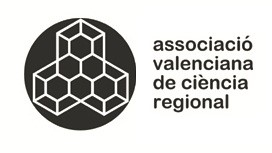Workshop: Institutions and governance after the pandemic: International perspectives – “Transparency, corruption and quality of government in uncertain times” – Universitat Jaume I – 6-7 October

“Transparency, corruption and quality of government in uncertain times”
OBJETIVES
Today, there exists a generalised consensus that institutions matter for growth. Although the question has been approached from a variety of analytical perspectives, the most influential line was initially related to the New Institutional Economics, according to which institutions, i.e., the rules of behaviour that affect the incentives of the economic actors, have quantifiable effects, at both national and sub-national levels.
But these pillars have been subject to deeper scrutiny over the last fifteen years. One of the side effects of the 2007/08 economic and financial crisis was the rise of populism, related to phenomena such as the existence of left-behind places, development traps and, ultimately, lack of trust in governments and institutions. The phenomena had notorious consequences, including the 2016 Brexit vote in the UK, the 2016 election of Donald Trump in the US, the 2016 Austrian presidential election, the 2017 French presidential and the 2017 German general elections.
The outcome of the recent 2022 Italian general elections suggests that perceptions about quality of government – or, its nemesis, corruption – are changing slowly, and efforts to combat corruption and increase the quality of government might still take years to materialise. In a current global scenario dominated by economic, social, and political uncertainty, derived from a still ongoing health crisis, a war in Europe, an energy crisis, and soaring inflation rates, the role of institutions becomes even more important, as the grease for the wheels we need to exit these multiple crises.
In this intricate scenario, the workshop will bring together a blend of researchers from several prestigious universities, central banks and think-tanks who will present eight contributions to the general field of corruption, transparency, quality of government, as well as their measurement and effects. The perspectives will be different, considering several levels of government, contexts, units of analysis (firms vs political institutions), as well as theoretical and methodological approaches, but all contributions represent steps forward in a field whose momentum is not expected to decline in the coming years.
Comité organizador:
Luisa Alamá, Daniel Aparicio, María Teresa Balaguer, Juan Ángel Lafuente, Emili Tortosa-Ausina
Castelló de la Plana, 6-7 de octubre de 2022
Lugar: Facultat de Ciències Jurídiques i Econòmiques, Universitat Jaume I Inscripciones:
PROGRAMA
Jueves, 6 de octubre de 2022
Sala de Premsa, Edifici Rectorat
Apertura y presentación: 16.30—16.45:
Emili Tortosa-Ausina (Universitat Jaume I, IIDL and Ivie)
Juan Ángel Lafuente (Director Càtedra Ciutat de Castelló, IEI-UJI)
Primera sesión: 16.45—18.30
Moderadora: Luisa Alamá
• Daniel Aparicio (Universitat Jaume I), “Are national or regional institutions the fundamental driver of growth? A response by multilevel modeling” (co-autores: Maria Teresa Balaguer-Coll, Emili Tortosa-Ausina).
• Isabel Narbón (Universitat Autònoma de Barcelona): “Financial sustainability and earnings manipulation: evidence from Spanish provincial councils” (co-autor: Diego Prior).
Pausa Café: 18.30—19.00 Jardí Els Sentits
Segunda sesión: 19.00 – 20.15
• Presentación: Excma. Sra. Eva Alcón, Rectora de la Universitat Jaume I
• Juan Mora-Sanguinetti (Banco de España): “Measuring Spain’s institutional quality with data. New results and economic impacts”
Viernes, 7 de octubre de 2022
Venue: Sala de Premsa, Edifici Rectorat
Primera Sesión: 9.30—11.30 Moderador: Juan Ángel Lafuente
• Marina Nistotskaya (Quality of Government Institute and University of Gothenburg), “Quality of Government as Impartiality in the Exercise of Political Authority”.
• Miguel Ángel Márquez (Universidad de Extremadura), “Within-country income inequality and political decentralization”.
• Jesús Peiró (Universitat de València): “Quality of government and women’s political empowerment in European regions: Sorting out the causality” (co-authors: Vicente Rios, Mercedes Beltrán-Esteve, Lisa Gianmoena, Andrés J. Picazo-Tadeo).
Pausa Café: 11.30—12.00
Jardí Els Sentits
Segunda Sesión: 12.00—13.30
Moderadora: María Teresa Balaguer
• Thomas Renstrom (Durham University): “Green Finance and Kantian Morality” (co-authors: Laura Marsilliani).
• Pilar Sorribas (Universitat de Barcelona): “Malfeasance behavior and its political consequences”.
Clausura: 13.45-14.00:
• Conselleria de Participación, Transparencia, Cooperación y Calidad Democrática de la Generalitat Valenciana.
• Joan Martín, Decano de la Facultat de Ciencies Juridiques i Economiques.